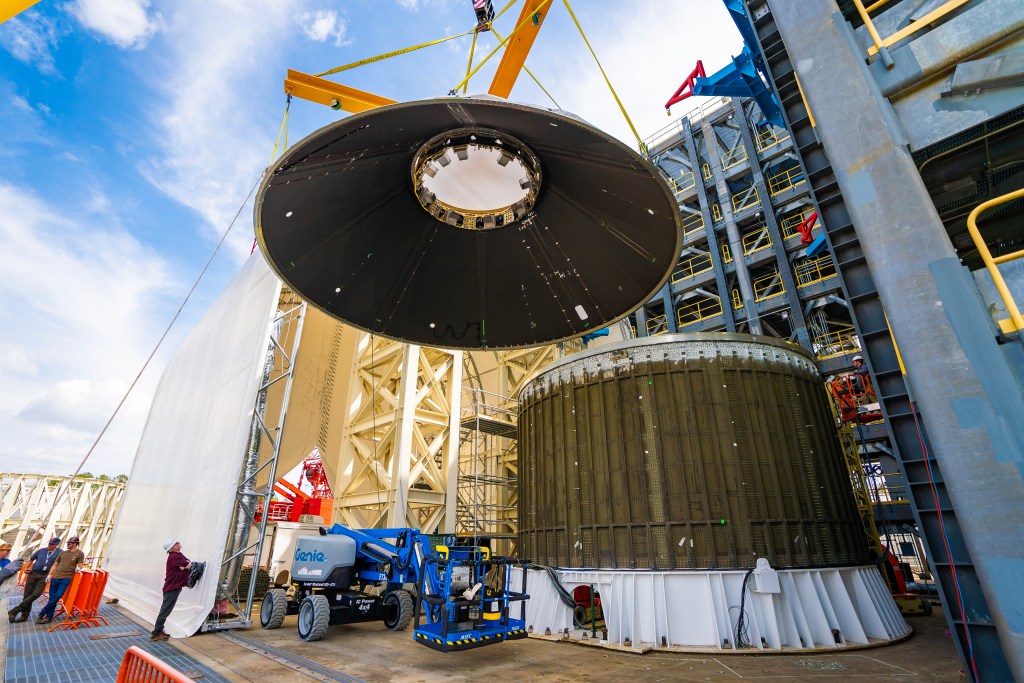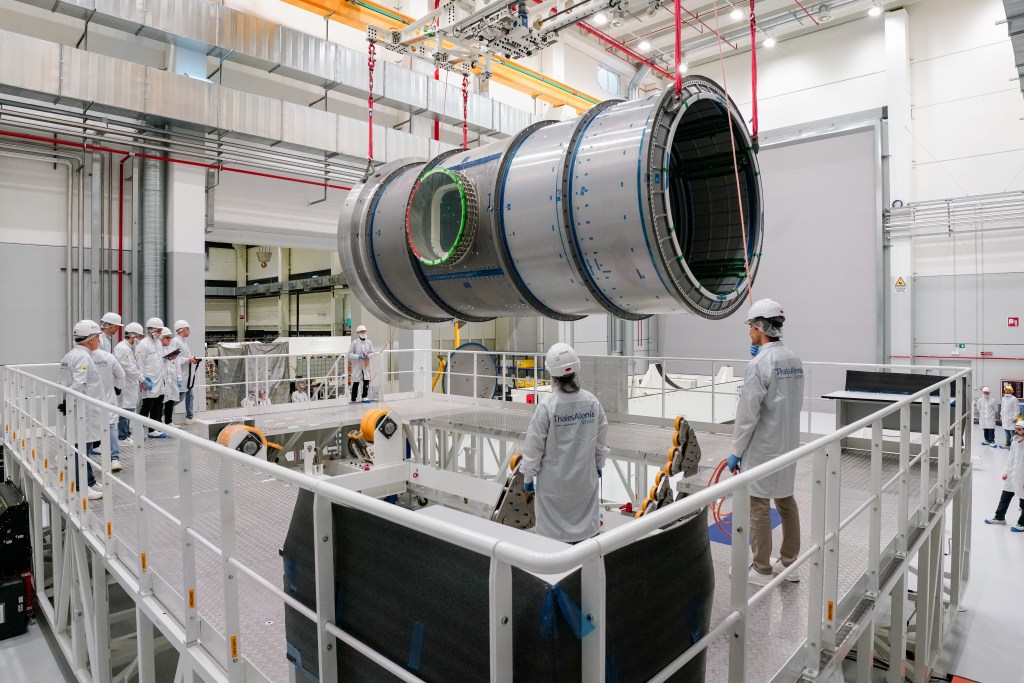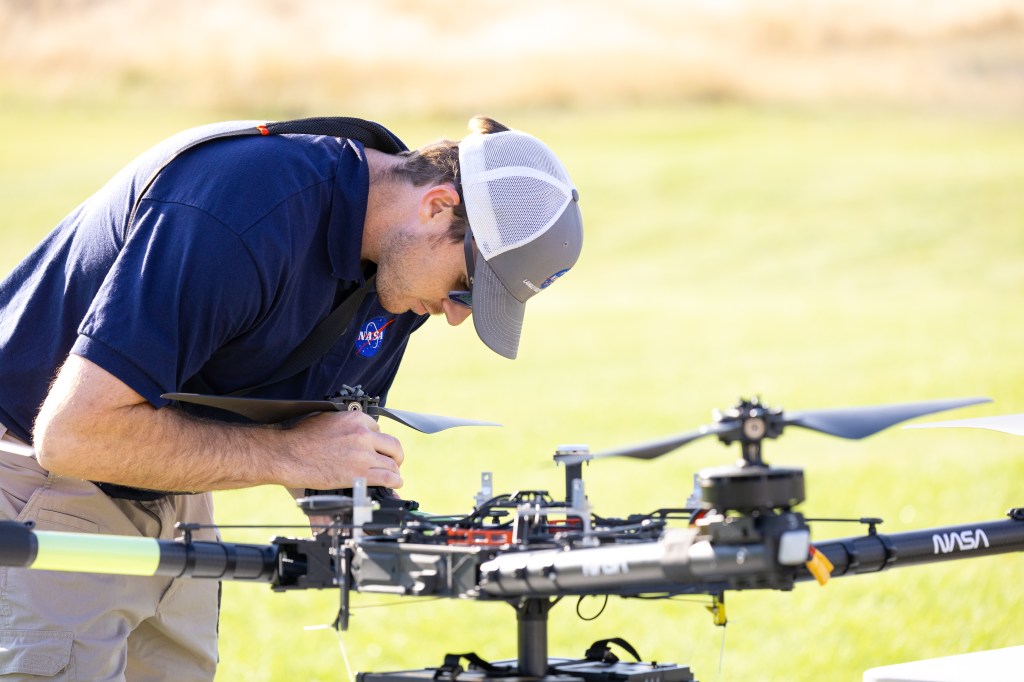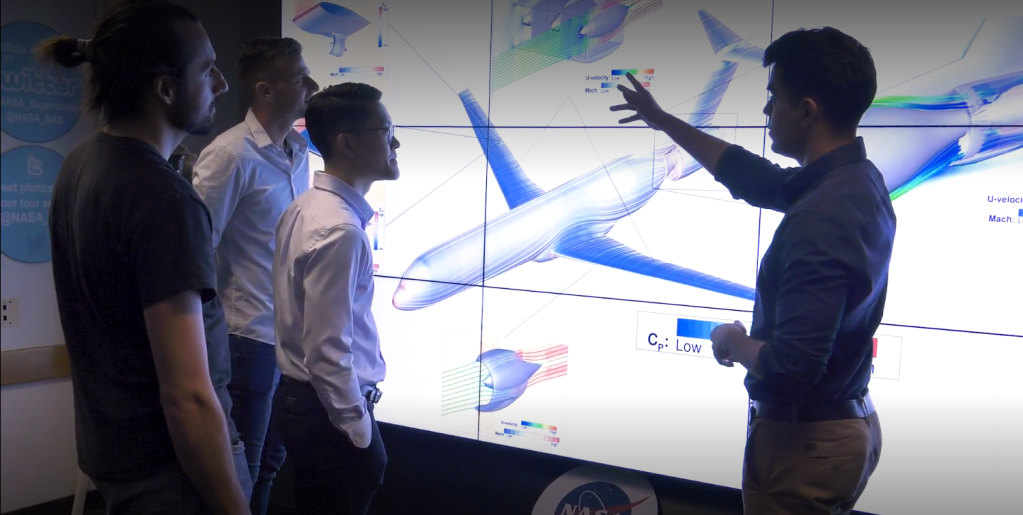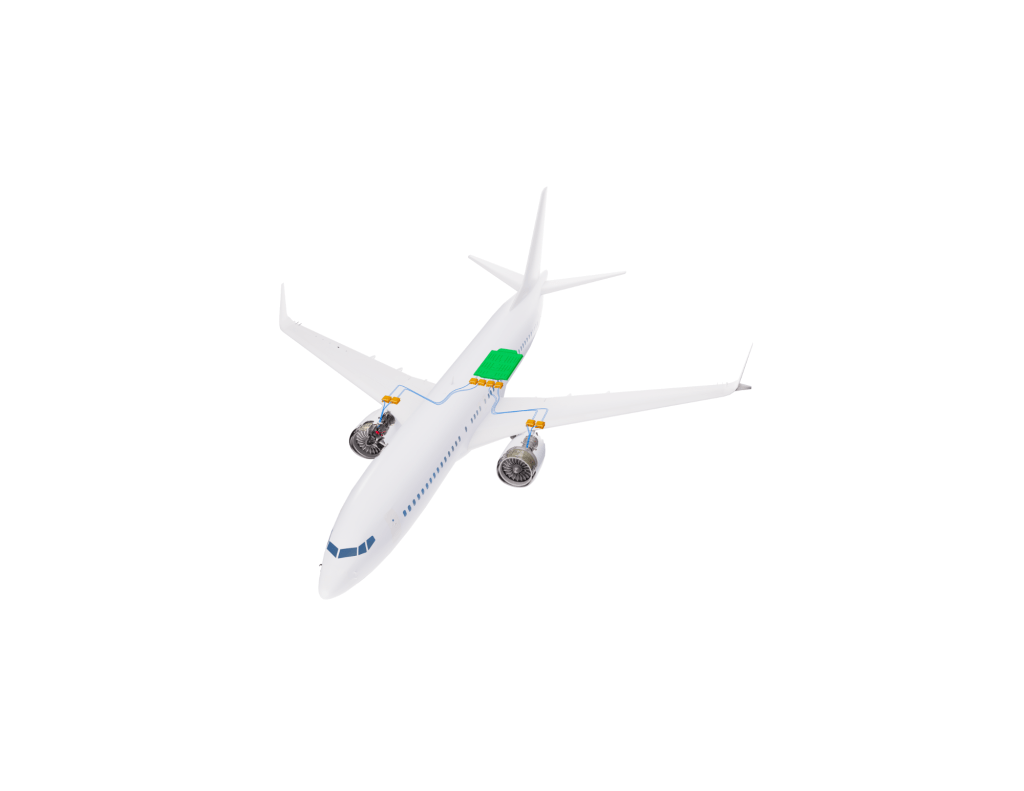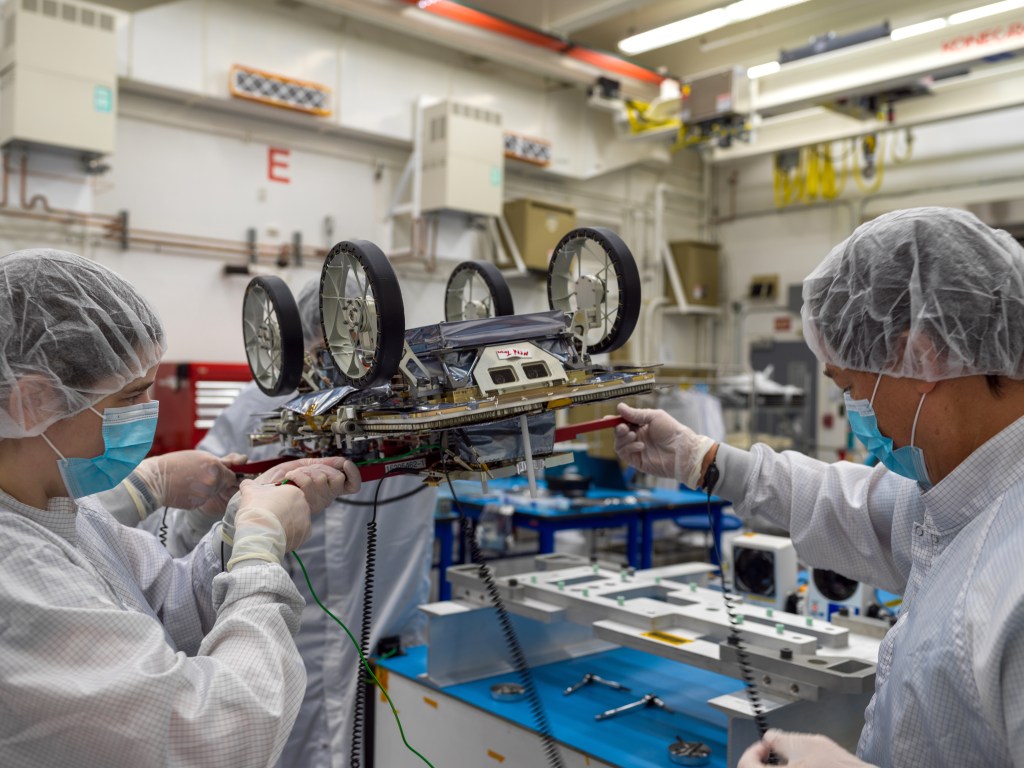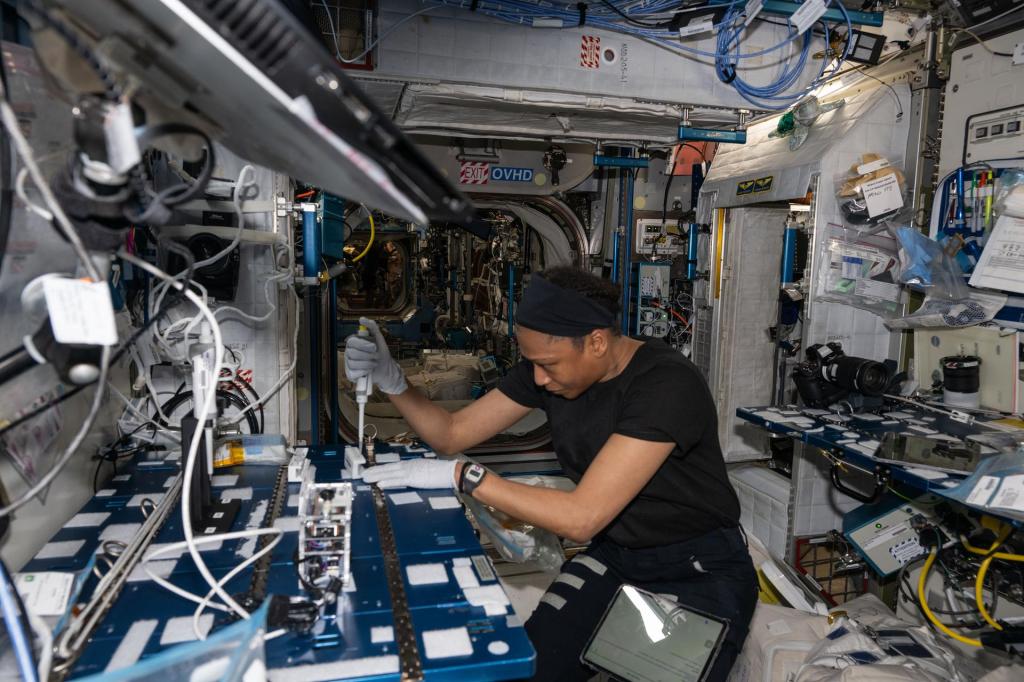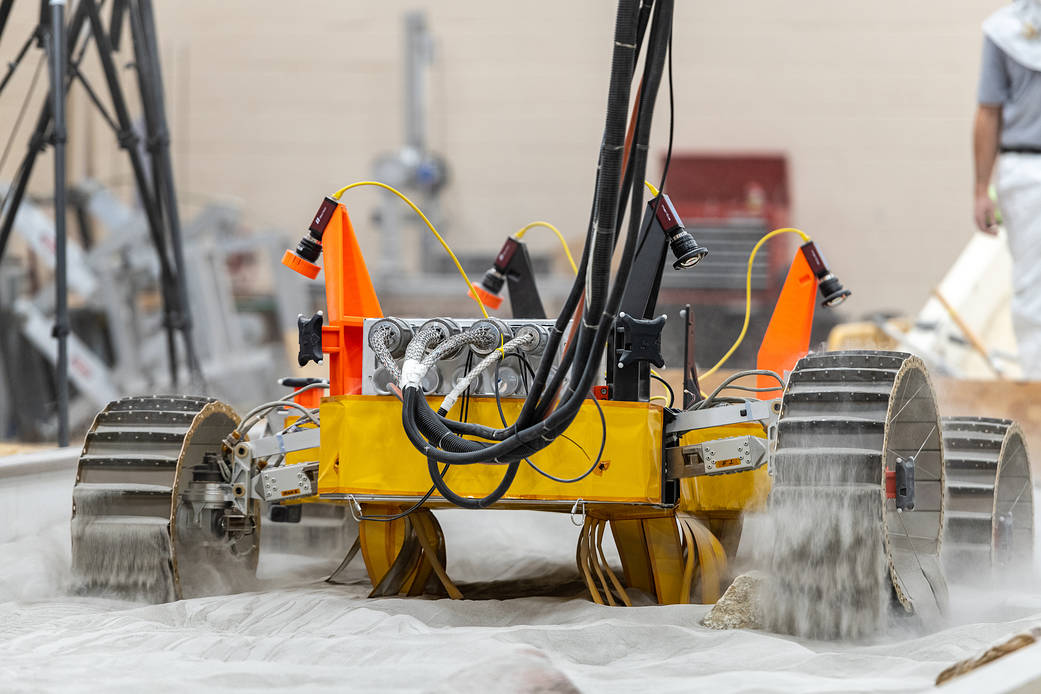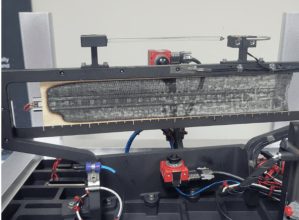The test version of NASA’s Volatiles Investigating Polar Exploration Rover, or VIPER, kicks up high sinkage sand-like material while transiting NASA Glenn’s Simulated Lunar Operations Laboratory, or SLOPE bed. In November 2021, the latest test rover visited SLOPE to complete the next iteration of mobility testing, a critical step toward ensuring the rover is ready for its 2023 mission to the Moon’s South Pole to get a close-up view of the location and concentration of ice and other resources.
The latest prototype of the rover, known as Moon Gravitation Representative Unit 3, or MGRU3, has the same wheel design and base size as the rover that will go to the Moon. It also has the flight design motors, gearboxes and joints, as well as the newest version of the flight software.
This test was the third mobility assessment conducted by VIPER at SLOPE to collect critical data on the software mobility controls, the onboard navigation system, and mobility performance over hazards and on loose soil. For over two weeks, the team used the facility’s unique capabilities to drive MGRU3 over various obstacles and up steep slopes. The data collected at Glenn, along with a concurrent wheel-only test at the ProtoInnovations lab in Pittsburgh, will help inform the rover operations and science teams on route planning.
Later this spring, yet an even more flight-like rover will return to SLOPE for verification and validation testing. It is comparable to the final exam where the rover will need to prove it’s capable of meeting design requirements with its hardware, software, and electronics.
VIPER will be delivered to the surface of the Moon in late 2023 by Astrobotic’s Griffin lander as part of NASA’s Commercial Lunar Payload Services initiative.






